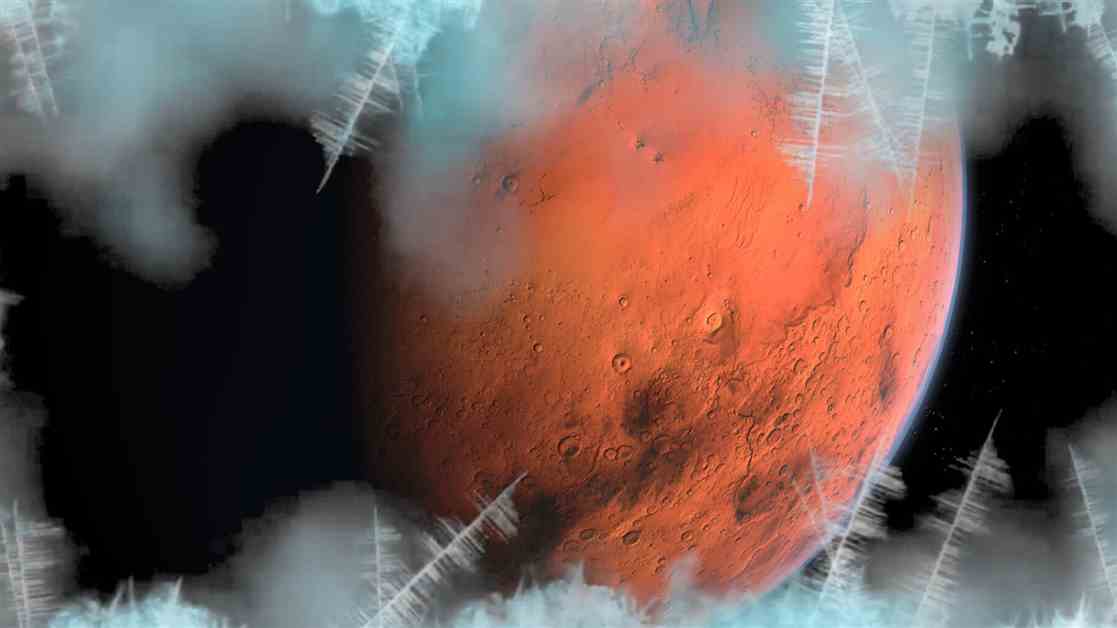Title: Morning Frost on Mars, a Discovery That Could Benefit Future Astronauts
Researchers have found frost on several volcanoes on Mars. This discovery is surprising because Mars has a much less dense atmosphere than Earth and contains thousands of times less water. Yet, an exceptionally thin layer of frost, thinner than a hair, covers a vast area of Martian volcanoes.
“This is the first time we have discovered water ice on the summits of volcanoes and the first time we have discovered water ice in the equatorial regions of Mars,” said Adomas Valantinas, a planetary scientist at the University of Bern in Switzerland and Brown University in the United States.
The frost was specifically found in the Tharsis region, home to massive volcanoes several kilometers high such as Olympus Mons, Arsia Mons, Ascraeus Mons, and Ceraunius Tholus. High-resolution color images from the European Space Agency’s ExoMars Trace Gas Orbiter (TGO) were used to make this discovery. Additional observations from the ESA’s Mars Express probe confirmed the presence of frost on the volcanoes.
Identifying the frost was a challenging task due to the presence of water and carbon dioxide on Mars, both of which can easily turn into gas and appear white or shiny in visible light. Researchers had to conduct a thorough investigation using various tools and a numerical simulation of the microclimate of Mars’ volcanoes to confirm the presence of frost.
This discovery supports the idea that Mars may have once been a much wetter and potentially habitable world with giant lakes and meandering rivers. Spacecraft orbiting Mars have previously provided evidence of frozen and liquid water on the planet, with significant amounts of ice observed at the North and South poles.
The frost discovery could serve as a key indicator of the water cycle on Mars, providing valuable insights for potential human exploration. Understanding the exchanges of water between the atmosphere and the Martian surface is crucial for future missions to the red planet.
Overall, the presence of frost on Martian volcanoes opens up new possibilities for studying the planet’s past climate and water history, shedding light on its potential for supporting life or human settlement in the future. The ongoing exploration of Mars continues to uncover fascinating discoveries that deepen our understanding of the planet and its potential for human exploration and habitation.



